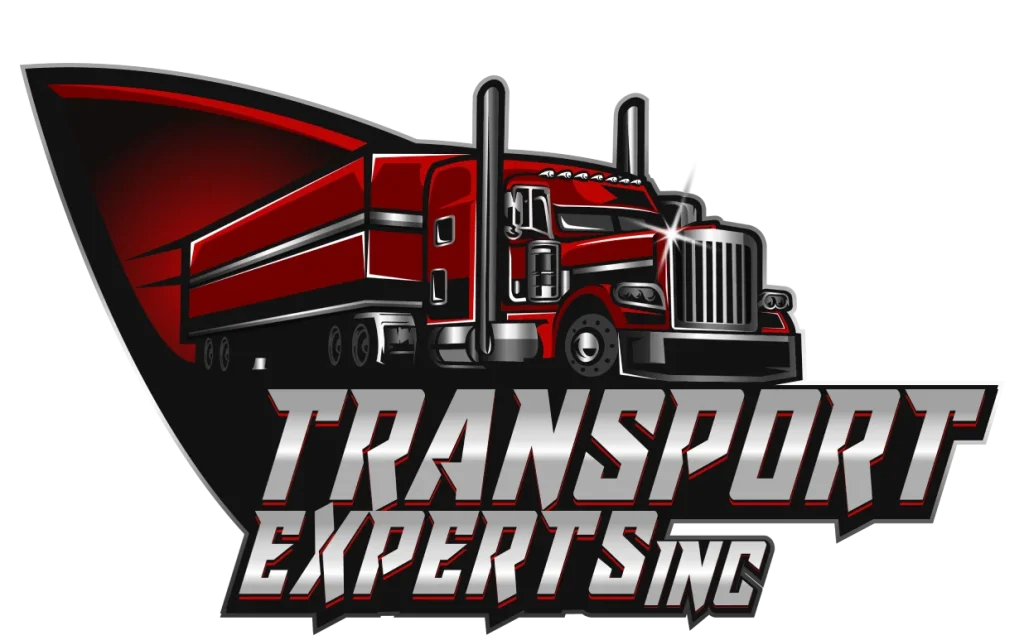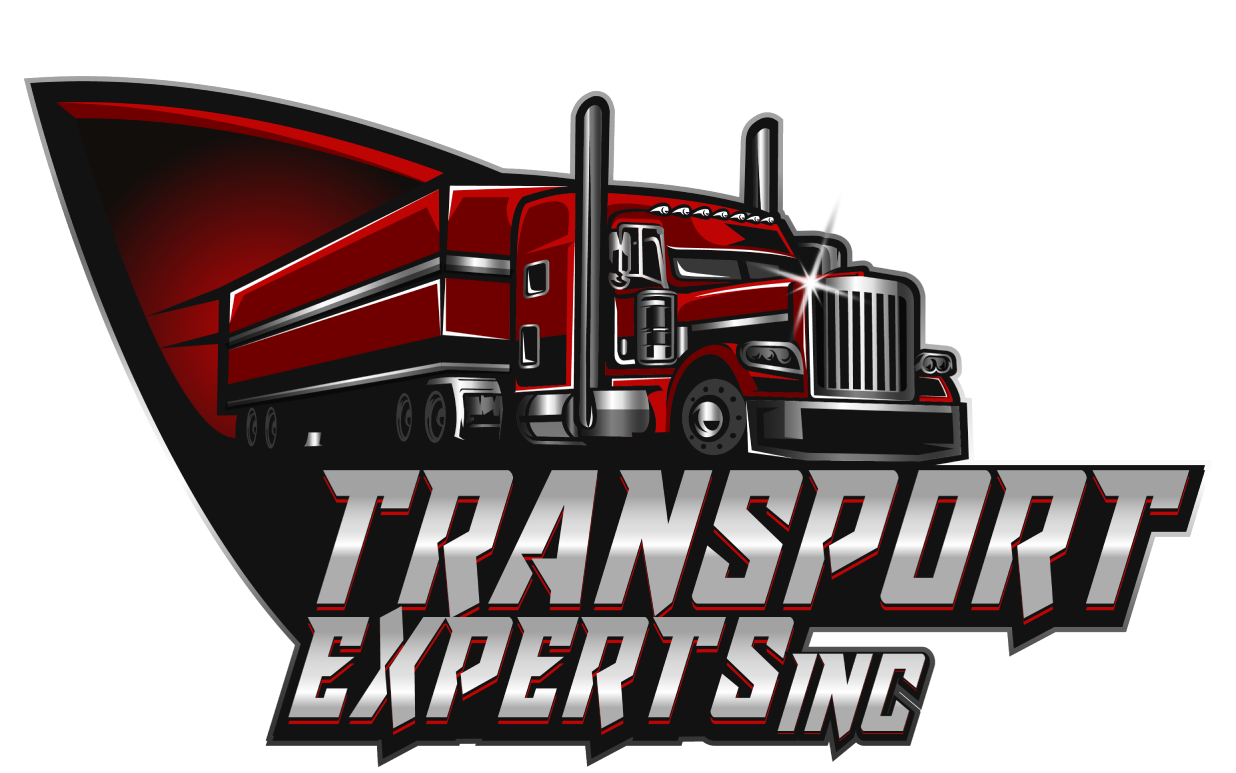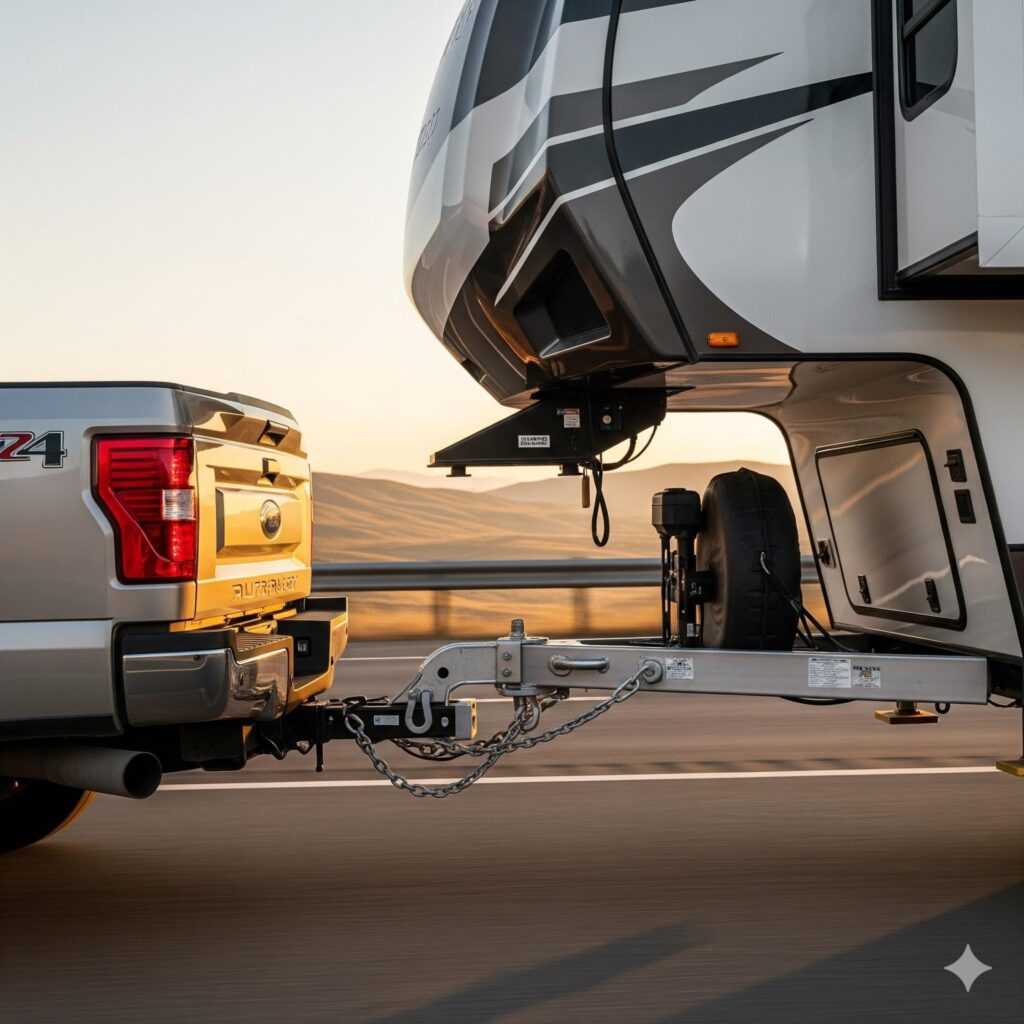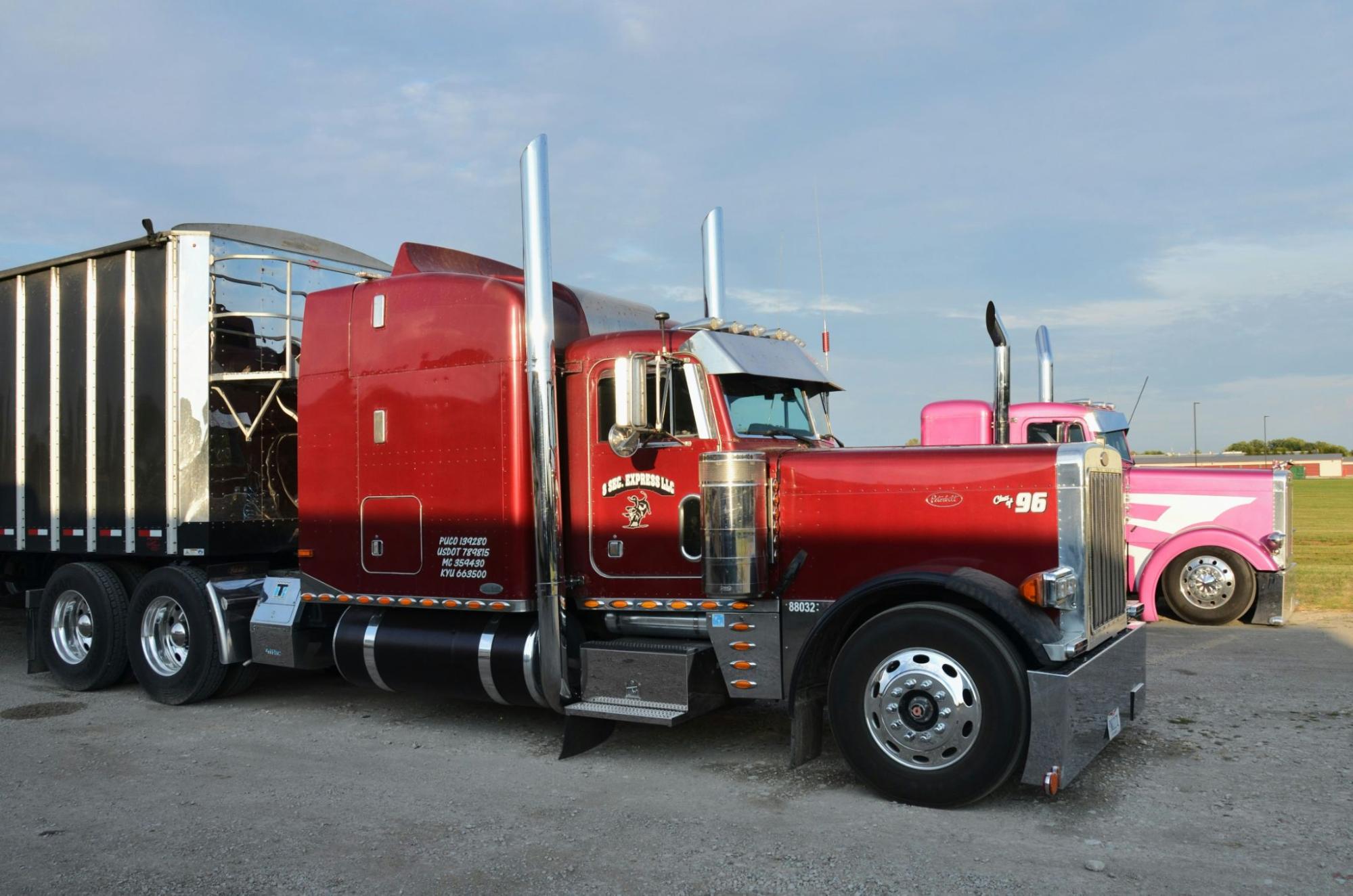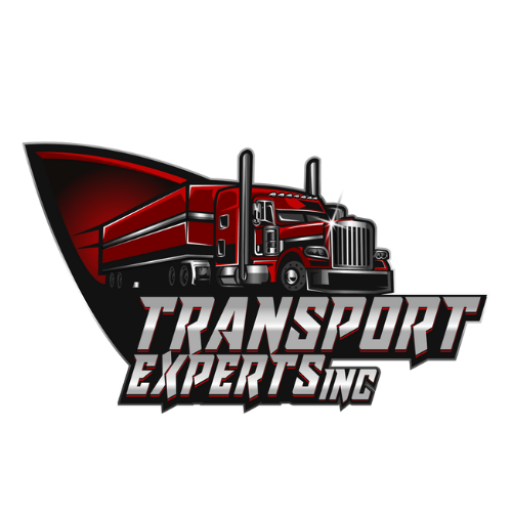Well, towing heavy trailers might sound like a challenging task, but if you have the right equipment, it is a piece of cake for you.
Obviously, trailers are not easy to tow as they can weigh up to hundreds of pounds or even thousands. Do not confuse them with towing a normal car; they are much harder to handle if you are short on equipment.
No matter if you are trying to pull a massive RV, transporting livestock or shipping heavy equipment for construction, choosing the right hitch setup can make a lot of difference for you. Picking the right one means guaranteeing safety, stability and convenience for you.
Now, two of the most popular options for towing such heavy-duty trailers are the 5th Wheel Hitch and the Gooseneck Trailer Hitch. They might look similar, but trust me, they are not when it comes to towing heavy trailers.
Yeah, I know both of them mount to the bed of your truck, place the weight of the trailer on the rear axle, and offer more stability in contrast to a traditional bumper. But their designs, quality of ride and usage are completely different from one another.
Confused?
That’s exactly why I am here. In this blog, I will tell you about the Key difference between a 5th wheel hitch and a gooseneck hitch to help you choose the right one for you. So, let’s get started!
Key Differences Between a 5th Wheel Hitch and a Gooseneck Hitch
One of the biggest difference between a 5th wheel hitch and a gooseneck hitch is the manner in which they connect with your trailer. This point of connection creates a difference in the quality of rise, capacity and bed space.
I know it’s all too confusing. That is why I have created a side-by-side table to help you understand the key difference between a 5th wheel hitch and a gooseneck hitch easily. So, let’s take a look at what sets them apart:
| Feature | 5th Wheel Hitch | Gooseneck Trailer Hitch |
| Connection Style | It uses a plate and a Kingpin to connect with the trailer. | Uses a ball and coupler connection as a typical trailer, but fitted in the truck bed. |
| Mounting Location | Fitted above the rear axle, along with a big plate occupying the bed area. | Mounted to the undercarriage of the truck, with the bed being free most of the time when it is not being pulled. |
| Ride Quality | Offers an easier and more consistent towing (perfect with RVs and campers) | A little bumpy since so directly connected, but very stable with heavy loads. |
| Bed Space Usage | Consumes a lot of space on the bed when not used. | The smallest intrusion, which permits additional truck bed room. |
| Common Uses | 5th Wheel hitches are ideal for large RVs, campers, and horse trailers | Gooseneck trailer hitch is ideal for farm, construction, and equipment trailers. |
Ah, that makes a lot of sense now.
Now we know exactly what makes them different from one another, from a fifth wheel to gooseneck adapter, we know our options for towing.
5th Wheel Hitch vs Gooseneck Hitch: Pros and Cons
Obviously, nothing is perfect in this world. That’s why we need to assess our options and see which one suits us best. So, let’s take a look at the pros and cons of both of these from a 5th wheel to gooseneck adapter to understand which is ideal for the use:
Get ready, we are about to witness 5th wheel vs gooseneck. Let’s go and take a look at them one by one.
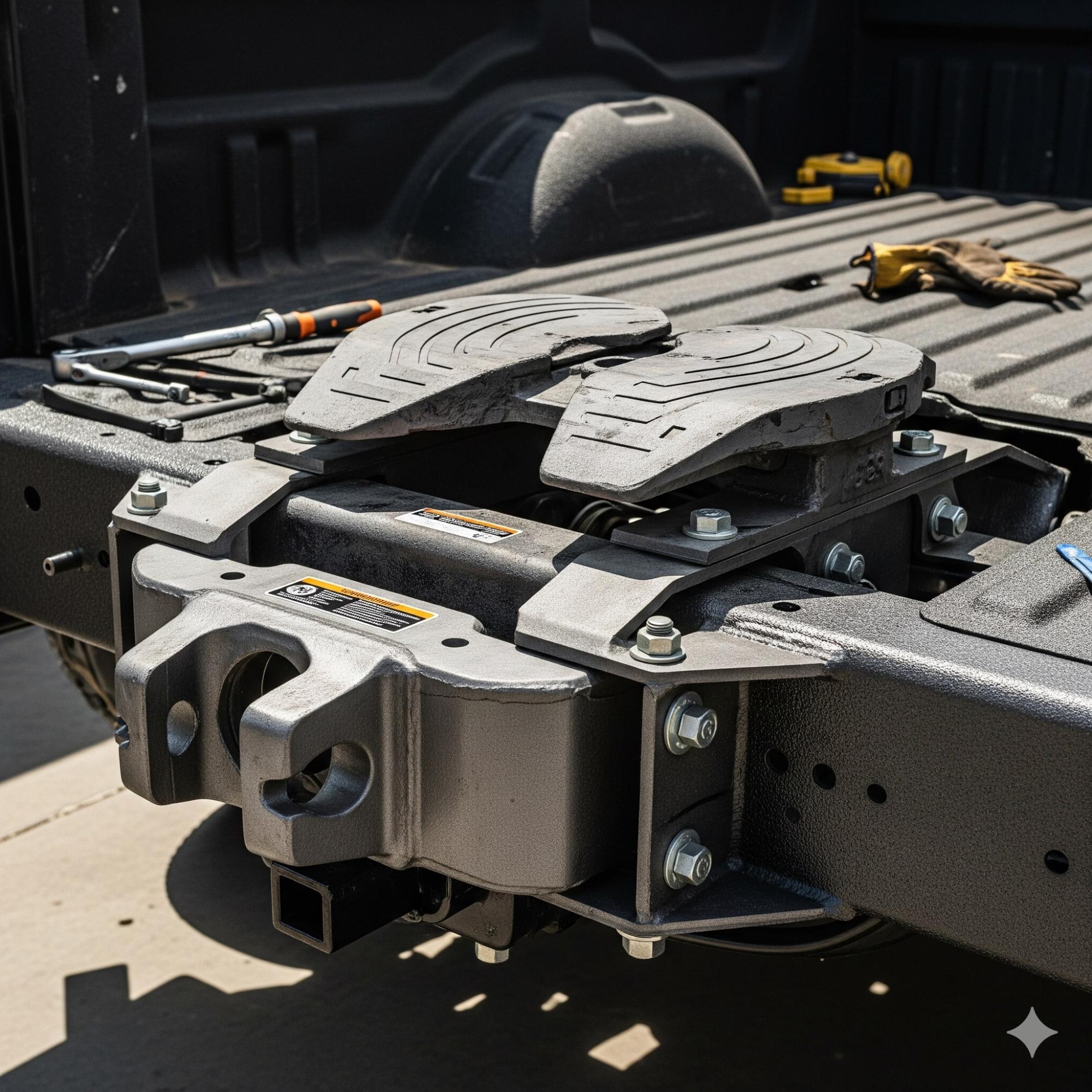
Pros of 5th Wheel Hitch
Here are the advantages of using a 5th Wheel Hitch.
- Smoother, Quieter Ride: The plate and kingpin design is more stable and has less trailer chucking and noise.
- Great for RVs and Campers: Ideal in high and heavy travelling trailers where comfort is essential.
- Easy to Maneuver: The ability to turn the head and move backwards is made easy.
- Safer for Passengers Inside RVs: The RVs have less bounce and swing in the air.
Cons of 5th Wheel Hitch
Now, let’s take a look at its cons:
- Takes Up Bed Space: The hitch assembly is massive and weighs more, and therefore, it becomes more difficult to have other use of the truck bed.
- Higher Cost: Normally more costly to purchase and set up.
- More Complex Setup: It is necessary to have rails and occasionally a slider on short-bed trucks.
Pros of Gooseneck Hitch
We are now fully aware of the pros and cons of the 5th Wheel Hitch. Now, it’s time to explore the advantages of using a goose neck hitch.
- Higher Towing Capacity: Suited to commercial trailers, agricultural trailers and industrial trailers. The standard load capacity is 30,000 lbs.
- More Bed Space: The removable bed is much smaller and can be cleared out of the way when not towing.
- Lower Cost: Reduced design implies reduced purchase and installation price.
- Easier Hookup: You just need to drop the coupler on the ball to lock it.
Cons of the Goose neck Hitch
The cons include:
- Rougher Ride: Much noisier and might cause a rough ride due to vibrations.
- Less Ideal for RVs: Not a good option for passengers due to the rough ride.
- Requires Drilling: There are some installations that would need to make changes to the truck bed.
These are the most prominent pros and cons of a 5th wheel to gooseneck adapter to help you understand them better and make the right choice for you. You can also simply hire Transport Experts Inc. to make things right and easy for you.
Choosing the Right Hitch: When to Use Gooseneck or 5th Wheel
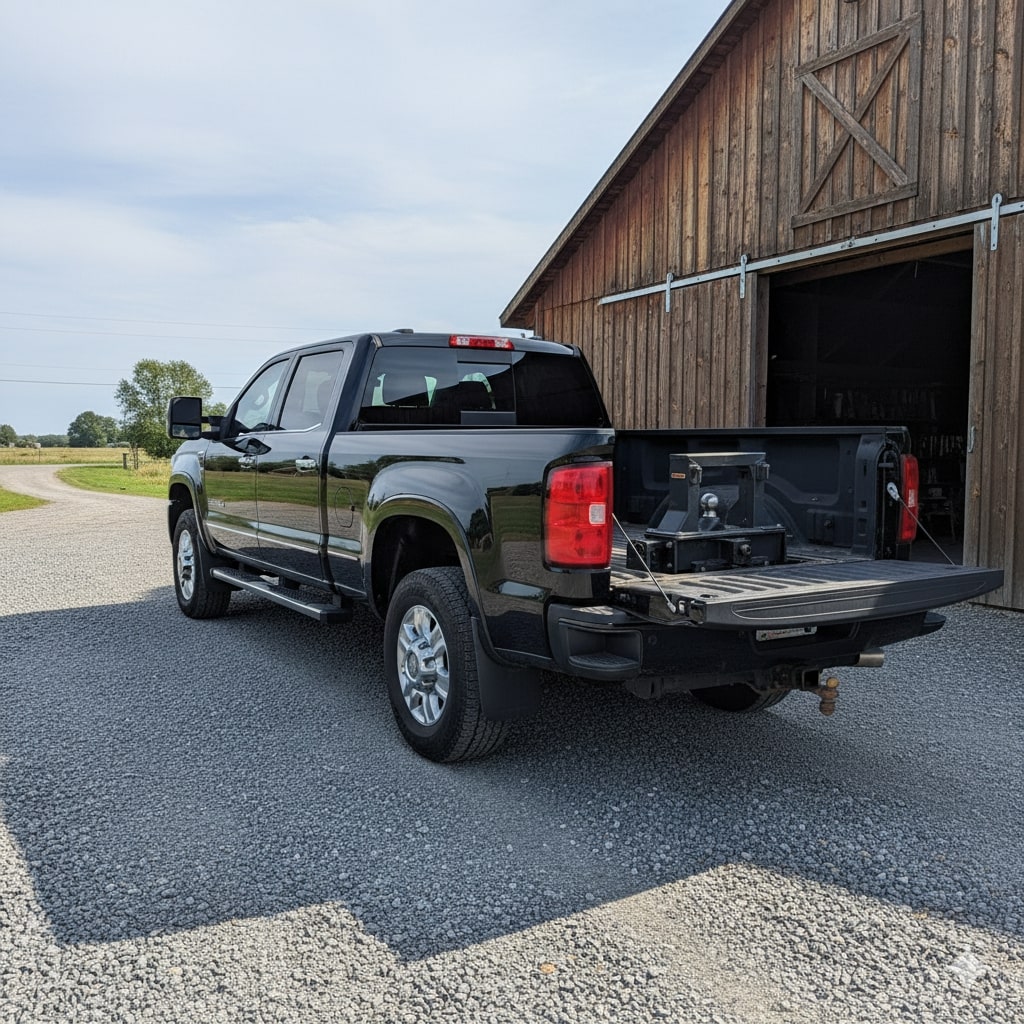
Now here comes the most interesting part of this blog: Which one to choose?
Once we know the Difference between a 5th wheel hitch and a gooseneck hitch, it becomes easier for us to choose. But you can’t just simply choose the one that you like; choose carefully instead, considering your towing requirements and the setup of your truck. It will help you make the right choice.
I know it’s not as simple as it sounds. That’s why I have prepared a checklist to help you choose the right one as per your requirements. Here we go:
Choose a 5th Wheel Hitch if:
- You have a big RV, camper or toy hauler and would like to be as comfortable as you can.
- You cover long distances, and a more stable ride is important.
- You possess a truck whose bed length is long enough or has a sliding 5th wheel hitch with clearance in short beds.
Choose a Gooseneck Hitch if:
- You are carrying cattle, farm machinery or bulky building trailers.
- The more towing capacity, the better.
- When you are not towing, your truck bed has to be kept largely open.
- You desire a lower-priced, less complicated arrangement.
This will make it a lot easier for you to choose.
Bonus Tip:
If you have a pickup with a short bed, then check for clearance very carefully. 5th wheel hitches might require a sliding hitch to stop the trailer from hitting the cab while taking sharp turns. Whereas the goose neck hitches might offer you more flexibility to start with.
Adapters and Conversions: 5th Wheel to Gooseneck (and Vice Versa)
What is interesting here is the fact that you cannot always rely on one hitch. You can work with both, too.
When you clearly know the difference between a 5th wheel hitch and a gooseneck hitch, it becomes easy for you to choose the right one for the given task. For instance, you might already own a 5th wheel RV, but you might need to borrow a gooseneck trailer. This is where you will need adapters and conversion kits.
They help you convert your 5th wheel to a gooseneck or vice versa. Here is how:
5th Wheel to Gooseneck Adapters:
These will enable you to pull a 5th wheel trailer using a gooseneck ball in your truck bed. The adapter simply connects to your 5th wheel kingpin and then extends to the gooseneck ball. This can be useful in the event that you mainly have a gooseneck arrangement, but you sometimes have to pull a 5th-wheel RV.
Gooseneck to 5th Wheel Conversions:
Just like the fifth wheel to gooseneck adapter, you can convert your gooseneck into a fifth wheel, too. In case you have 5th-wheel rails fitted to your truck, then a gooseneck trailer can be attached with the help of a gooseneck plate or a gooseneck adapter.
Important Note:
Adapters are easy to use, and can influence the towing dynamics, introduce stress on the trailer frame, and decrease the recommended towing capacity. This will ma,ke you tempted to use one.
But you must never use one without checking the guidelines provided by the manufacturer. Also, make sure that your setup is safe and will not be overweight. When the weight is very heavy, it is better to use a special hitch rather than using adapters in the long run.
Professional Heavy Haul Services with Transport Experts Inc.
Choosing the right type of hitch for towing trailers is just the first step. When it comes to actually transporting the heavy equipment or oversized loads, you will definitely need a team that is experienced in transportation and understands all about it, just like Transport Experts Inc. USA.
They are professionals and deal with professional heavy-haul services in the USA. We have gooseneck and 5th wheel configurations on our fleet, including flatbeds, lowboys, and step-deck trailers, to move anything, including RVs, construction machinery.
Here is why you need them:
- Expert Equipment Matching: They have the correct hitch and trailer that fit the right load, which is safe and compliant.
- Experienced Drivers: They have a team of skilled and experienced drivers who are familiar with the ins and outs of heavy load transportation.
- Nationwide Coverage: Their transportation services are available throughout the USA, no matter your town or state.
- Safety First: Each haul is up to the standards of the DOT, weight and safety regulations, etc., to give you a hassle-free experience during transportation.
No matter if you need someone to move a massive load or a luxury RV, Transport Experts Inc. is the best option you have. They can handle this job with utmost care and precision. So, reach out and book your slot.
So whether you need to move a massive piece of equipment or a luxury RV, Transport Experts Inc. can handle the job with precision and care.
Frequently Asked Questions
The main difference lies in their connection design and use. A gooseneck hitch uses a ball and coupler system, while a 5th-wheel hitch uses a plate and kingpin connection. Gooseneck hitches are smaller, free up more truck bed space, and can handle heavier loads, making them ideal for commercial or farm use. On the other hand, 5th-wheel hitches provide a smoother, more stable ride, making them better suited for RVs and long-distance towing.
Neither is inherently better—it depends on your specific needs. Gooseneck hitches are preferred for heavy-duty hauling, such as commercial or agricultural trailers, due to their strength and compact design. In contrast, 5th-wheel hitches are recommended for campers and RV towing, offering a more comfortable and stable ride over long distances.
Yes, you can tow a 5th-wheel trailer with a gooseneck hitch using a 5th-wheel-to-gooseneck adapter. However, you should be cautious—these adapters can affect towing dynamics, weight distribution, and ride comfort. Always check your truck’s towing capacity and the manufacturer’s recommendations before using an adapter.
Generally, gooseneck hitches offer higher towing capacities, making them the go-to choice for very heavy equipment or commercial loads. That said, modern 5th-wheel hitches have also evolved to handle impressively heavy weights. It’s essential to verify your truck and trailer ratings to ensure safe and proper towing.
No, a gooseneck hitch is not the same as a 5th-wheel hitch. While both are mounted in the truck bed and distribute weight over the rear axle, they differ in design, connection method, and ride characteristics. The gooseneck uses a ball-style connection for heavy-duty hauling, whereas the 5th wheel uses a kingpin-style plate connection for a smoother and more controlled towing experience.
